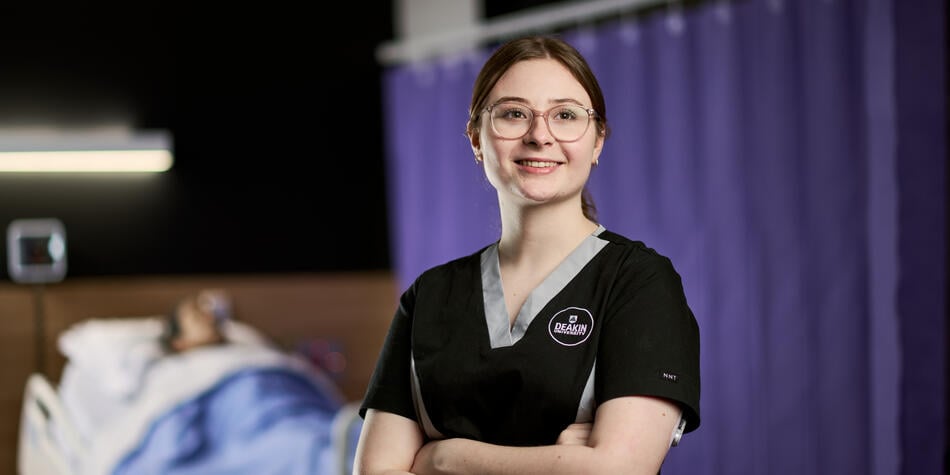Why people move away from nursing
Francis and Merlyn both moved on from bedside nursing because they saw other opportunities but they’ve seen colleagues leave for a myriad of reasons.
‘I think people leave nursing because shift work is extremely onerous,’ Francis says. ‘It’s onerous on your family, it’s onerous on your social life, it’s onerous on yourself. They say shift work shortens your life expectancy by five or 10 years and it’s tiring.’
Francis works in intensive care in the Hyperbaric Unit at the Alfred Hospital and he says certain types of nursing can be particularly challenging. ‘Nurses may see things they haven’t experienced anywhere else,’ Francis says. ‘The gravity of the work they’re doing can be emotionally overwhelming and that does place a degree of fatigue on you.’
Merlyn says it’s not uncommon to see compassion fatigue in nursing related jobs. ‘I think compassion fatigue can manifest itself in so many different ways in different people,’ she says. ‘Some people become really withdrawn and are not engaging with their work and then others are just really angry.’
She has friends who moved away from nursing because they felt under-supported and overworked. ‘You go into the field of nursing to help support your fellow human and if you can’t really do that or if you’re not doing it in a way that really aligns with your values you’re going to want to move away,’ she says.
How to make a career change
One of the first things Merlyn did when she decided to make a career change was quiz friends who were studying medicine. ‘I talked to them and found out what was involved,’ she says. ‘I also talked to doctors and really observed the lifestyle of a doctor to try and understand if I wanted that lifestyle.’
If you’re considering a move away from nursing, Merlyn recommends volunteering in the field that you want to explore. ‘I think that really helps with getting some experience and it allows you to see what it’s like,’ she says.
It’s important to consider how the skills you’ve developed through nursing could be utilised in other industries. ‘I have a friend who was a nurse with me and after doing his nursing training he went off to study law,’ Francis says. ‘He’s seen immense value add from his nursing career in how he approaches his law career.’
Francis says nurses have the tendency to underestimate themselves. ‘Nurses can be very humble people and we’re not always used to talking about ourselves. Things like communication, emotional intelligence and time management, there are many skills that you develop in nursing that are really transferable to any other role,’ he says. ‘Nurses have immense capacity.’
Thinking of a career change? Explore Deakin's nursing specialisations.


